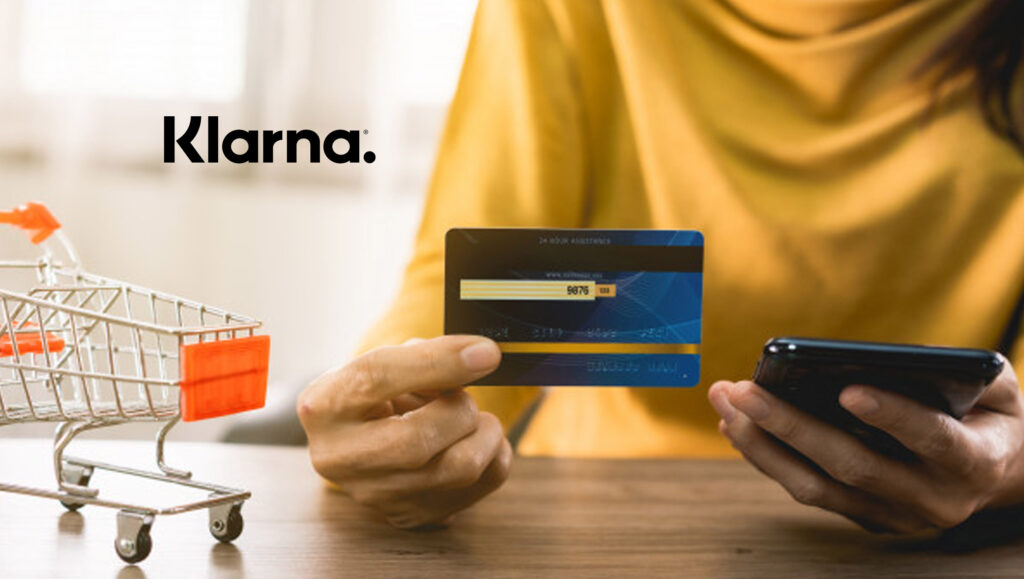Virtual Shopping from Klarna connects online shoppers directly with experts in physical stores through live video and messaging, to provide a highly personalized experience that helps consumers shop online with confidence.
By placing human interaction at the center of the online shopping journey, Virtual Shopping empowers retailers to create immersive experiences that are proven to increase customer engagement, reduce returns and drive loyalty.
Already live with over 300 brands including Levi’s and Hugo Boss, Klarna now introduces Virtual Shopping as an offering globally to its 400,000+ retailers.
Klarna, a leading global retail bank, payments, and shopping service, announced the launch of its Virtual Shopping offering, bringing the best of in-store to the online experience. Virtual Shopping by Klarna enables consumers to browse and buy online with confidence by connecting them directly with in-store experts through live chats and video calls to receive product advice and inspiration. For retailers, Virtual Shopping empowers in-store teams to bring their expertise beyond the walls of physical stores to millions of shoppers online. By using the new merchant-facing Klarna Store App, in-store teams can share photos and videos of items and demo products live directly from the store floor, from home, or even from emerging dark store concepts. This in turn drives brand engagement and loyalty while reducing return rates. The launch builds upon the successful acquisition of Hero, a social shopping platform and leader in virtual shopping services, last year.
Read More: Klarna Completes Acquisition Of PriceRunner
While online shopping has risen to new heights in recent years, in-store shopping remains the dominant channel, accounting for nearly 80% of global retail sales in 2021. According to new findings from Klarna’s Shopping Pulse Report, consumers favor shopping in physical stores because of the social interaction and level of customer service they offer. Unlike shopping in-store, the online experience does not allow consumers to see a product up close, touch, or try on items, making it hard to tell if products are true to size, fit, or color. Consumers today are looking for the same level of assistance when shopping online, with over three-quarters (78%) of US shoppers believing that online retailers need to invest in new technology to create more personalized services (45%) and product recommendations (40%).
Klarna’s Virtual Shopping tools are already live today with over 300 brands, including Levi’s, Hugo Boss, and Herman Miller, transforming online stores into a true omnichannel experience. Consumers can shop anything from sneakers to sofas without ever stepping foot in-store, but still receive expert guidance from in-store teams to help consumers in their purchasing decisions. Through live video and messaging, consumers can view photos and videos of items up close and watch live product demos directly from the store floor – demonstrating everything from how a piece of clothing fits off the rack to the color of a cosmetic product or the size of a piece of furniture.
David Sandström, Chief Marketing Officer at Klarna: “At Klarna, we want to provide the world’s best shopping experience – whether that is online or in-store. In the past, online shopping has been missing a key element: human interaction. With Virtual Shopping, we replicate the brick-and-mortar experience of receiving personalized advice from an in-store expert and bring it to the online realm. This will empower our partnered retailers around the world to bring their online stores to life and build customer relationships that last.”
Klarna is now making Virtual Shopping available to partnered retailers worldwide, serving as the ultimate online shopping companion to consumers and strengthening Klarna’s position as a global growth partner to its retailers. By giving consumers greater confidence in their purchasing decision, the service markedly improves performance for merchants, with consumers up to 21x more likely to make a purchase after speaking with an in-store expert online compared to when left unassisted1, while also increasing customer lifetime value.
How does Virtual Shopping work?
- For shoppers: Shoppers connect with an in-store expert when they click the Virtual Shopping icon on integrated stores from the retailer’s websites. Once connected, they can chat, receive photos and videos, follow product recommendations, and even have a two-way video chat, recreating the experience they would receive in-store.
- For retailers: Retailers integrated with Klarna can easily add Virtual Shopping to their online stores to deliver a true omnichannel experience. Once enabled, they can gain insights into shopper interactions and sales, enabling them to improve overall performance. To connect with online shoppers, in-store experts can now use the new, merchant-facing Klarna Store App for iOS and Android. Once connected, they can begin engaging with consumers by text, chat and video, making it easy to provide personalized recommendations, schedule in-store appointments, and stay in touch.
Klarna’s Virtual Shopping offering is live today in 18 markets, including the US, Canada, UK, Australia, New Zealand, Norway, Denmark, France, Poland, Netherlands, Belgium, Germany, Austria, Switzerland, Spain, Portugal, Italy, and Sweden. The offering will extend to additional markets in 2022.
Read More: SalesTechStar Interview with Kate Ahlering, Chief Revenue Officer, Calendly
1Conversion rate among online shoppers who engaged with Virtual Shopping via Hero was up to 21x higher than those who didn’t in 2020.
*Klarna’s shopping pulse includes insights from an online survey conducted in cooperation with research agency Nepa across 11 countries (the US, UK, Australia, Germany, Austria, the Netherlands, Belgium, France, Sweden, Norway, and Finland). In total, 11,740 consumers participated during Q1 2022 (January-March). The sample sizes are nationally representative, naturally including both Klarna users and non-Klarna users, and have been selected by research agency Nepa.






















